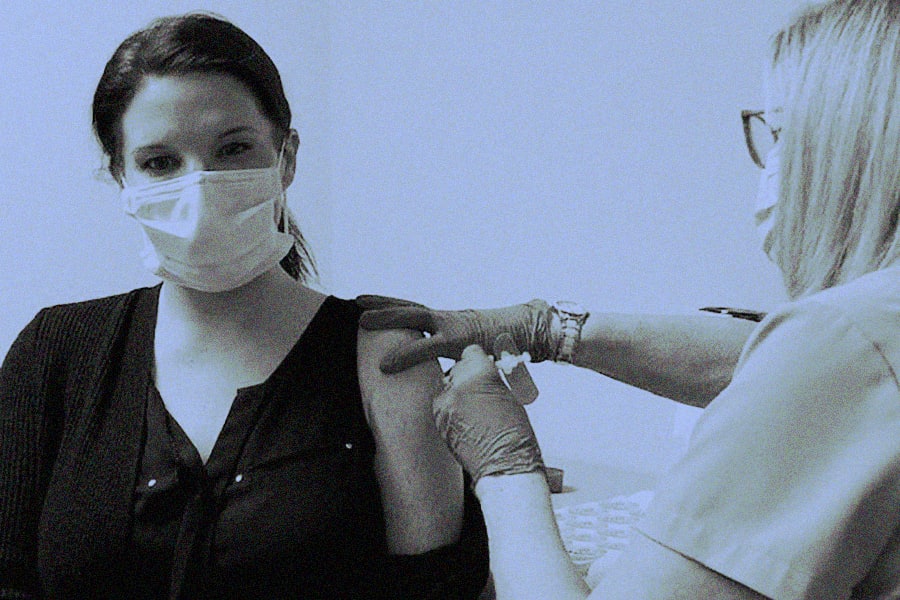
WASHINGTON — The Supreme Court on Thursday blocked the Biden administration’s rule requiring larger businesses to ensure that workers receive the Covid vaccine or wear masks and get tested on a weekly basis.
But the court said a separate mandate requiring vaccinations for an estimated 20 million health care workers can be enforced.
The workplace rule, announced last fall by the Occupational Safety and Health Administration, required companies with 100 or more employees to ensure that their workers either get vaccinated or wear masks and show negative Covid test results at least once a week.
The rule would have covered nearly 80 million American workers, and OSHA estimated it would save over 6,500 lives and prevent 250,000 hospitalizations in the next six months.
“Although Congress has indisputably given OSHA the power to regulate occupational dangers, it has not given that agency the power to regulate public health more broadly,” the court’s conservative majority said. “Requiring the vaccination of 84 million Americans, selected simply because they work for employers with more than 100 employees, certainly falls in the latter category.”
In their dissent, the three liberal justices on the court said OSHA was well within its authority and expertise to impose the mandates, unlikes the court, which they said was “lacking any knowledge of how to safeguard workplaces, and insulated from responsibility for any damage it causes.”
“In the face of a still-raging pandemic, this court tells the agency charged with protecting worker safety that it may not do so in all the workplaces needed,” the justices wrote. “As disease and death continue to mount, this court tells the agency that it cannot respond in the most effective way possible. Without legal basis, the court usurps a decision that rightfully belongs to others. It undercuts the capacity of the responsible federal officials, acting well within the scope of their authority, to protect American workers from grave danger.”
The Biden administration’s workplace rule, announced in November, was immediately challenged by a group of red states and businesses that said the government lacked the power to issue such a sweeping mandate. Lower courts initially blocked the requirement, but a later ruling allowed it to go into effect.
In lifting the earlier stay, a three-judge panel of the U.S. Court of Appeals for the Sixth Circuit called the OSHA rule “an important step in curtailing the transmission of a deadly virus that has killed over 800,000 people in the United States, brought our health care system to its knees, and cost hundreds of thousands of workers their jobs.”
The National Federation for Independent Businesses called the appeals court ruling “a gut punch to America’s small businesses who are struggling to stay in business as they come out of the pandemic.”
But the Supreme Court said a separate regulation that requires vaccinations for health care workers who treat Medicare and Medicaid patients could be enforced. Two federal appeals courts had blocked enforcement in 24 states, but the requirement went into effect in the remaining 26.
States opposed to the requirement said the federal law gave the government the authority to impose general health and safety rules for facilities like hospitals, but did not confer the power to require vaccines. The agency that administers Medicare and Medicaid has never before required vaccinations, they said.
Source: | This article originally belongs to Nbcnews.com










